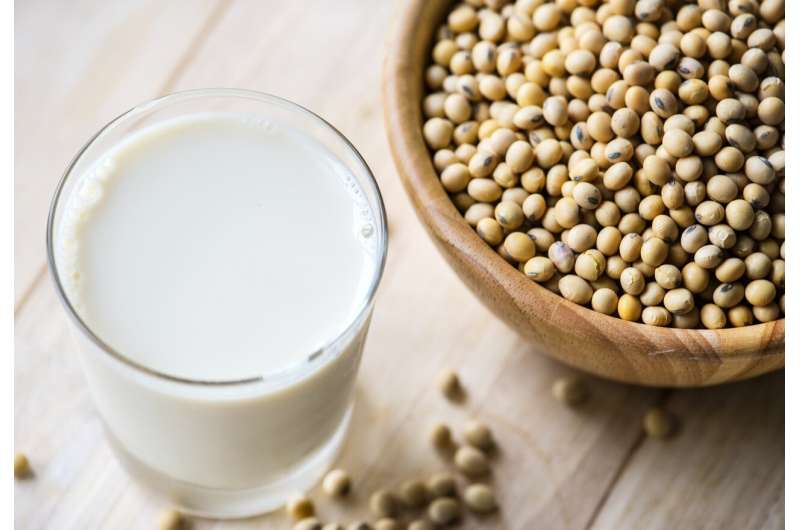Credit: CC0 Public Domain
Children of mothers who drink relatively more cow's milk during breastfeeding are at reduced risk of developing food allergies. That is the conclusion of researchers from Chalmers University of Technology, Sweden, in a new study published in the scientific journal Nutrients.
The result is based on a survey of more than 500 Swedish women's eating habits and the prevalence of allergies in their children at one year of age.
"We have found that mothers of healthy one-year-olds consumed more cow's milk during breastfeeding than mothers of allergic one-year-olds. Though the association is clear, we do not claim that drinking cow's milk would be a general cure for food allergies," says Mia Stråvik, doctoral student in the Division of Food Science at Chalmers University of Technology, and first author of the study.
There are many factors behind the risk of food allergy, not least genetic predisposition. Yet, as Mia Stråvik explains, "Diet is a factor where parents themselves can have direct influence. It is quite common nowadays for young women to avoid drinking milk, due in part to prevailing trends and concerns, some of which are linked to myths about diet."
She points out that allergy to milk protein is uncommon in adults, so most women can consume milk and dairy products themselves without issue. Lactose intolerance is something completely different, when the body cannot break down milk sugars. And in this case, lactose-free dairy products are tolerated by the body.
The hygiene hypothesis
According to Professor Ann-Sofie Sandberg, Mia Stråvik's supervisor, one possible explanation may be that the milk in the mother's diet contains substances that stimulate the maturity of the immune system.
"In a child's early development, there is a time window where stimulation of the immune system is necessary for the child to develop tolerance to different foods."
According to something known as the hygiene hypothesis, early contact with various microorganisms can function as something of a kickstart for a child's immune system, she explains.
"But with the lower prevalence of microorganisms nowadays in our more hygienic society, substances taken in through the mother's diet can be another way to stimulate the maturity of the immune system," says Ann-Sofie Sandberg.
Mia Stråvik's study is not the first to link cow's milk in a mother's diet to a reduced risk of allergies in children. Previous studies, however, have often been based solely on questionnaire responses—both in terms of eating habits and the presence of allergies. In this study both data and conclusions are significantly more robust.
"In this study, we were able to actually verify the women's reported intake of milk and milk products through biomarkers in her blood and breast milk. The biomarkers are two fatty acids formed in the cow's stomach, which are specific to dairy products," says Mia Stråvik. "Furthermore, all the cases of allergy in children were diagnosed by a doctor specializing in child allergies."
The study is part of a more extensive research project built around a family cohort study of 655 families who gave birth at Sunderby Hospital near Luleå, northern Sweden, during the years 2015–2018.
More information: Mia Stråvik et al, Maternal Intake of Cow's Milk during Lactation Is Associated with Lower Prevalence of Food Allergy in Offspring, Nutrients (2020). DOI: 10.3390/nu12123680
Provided by Chalmers University of Technology























